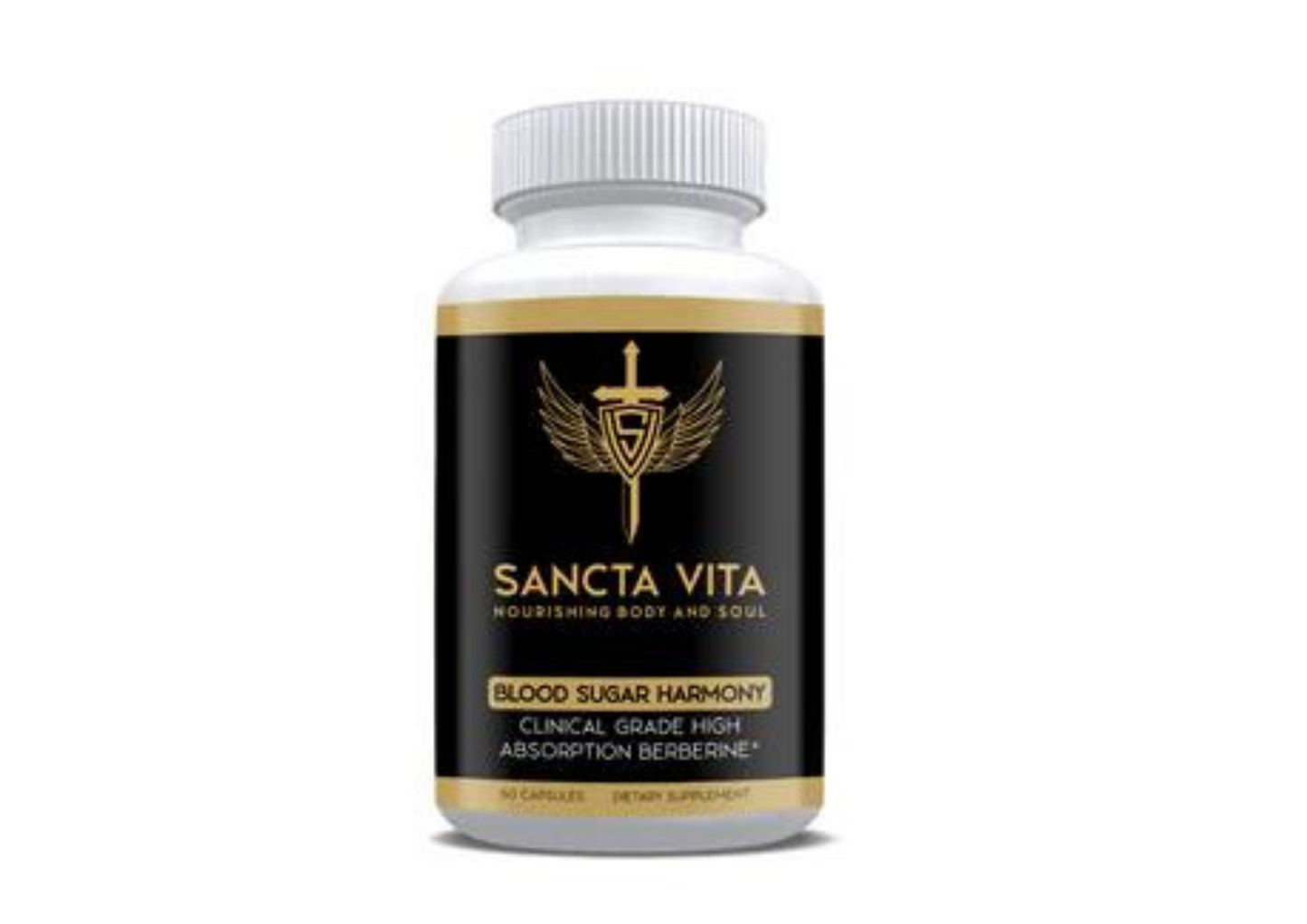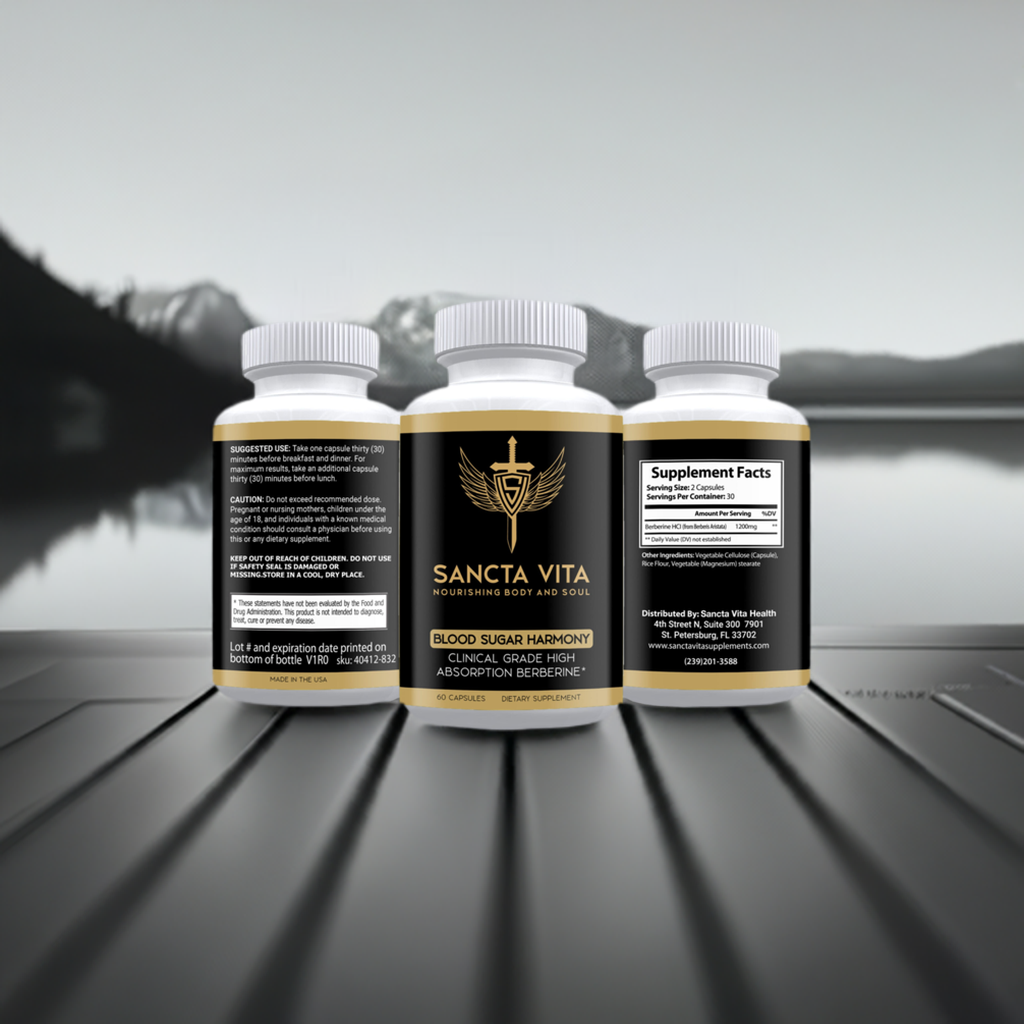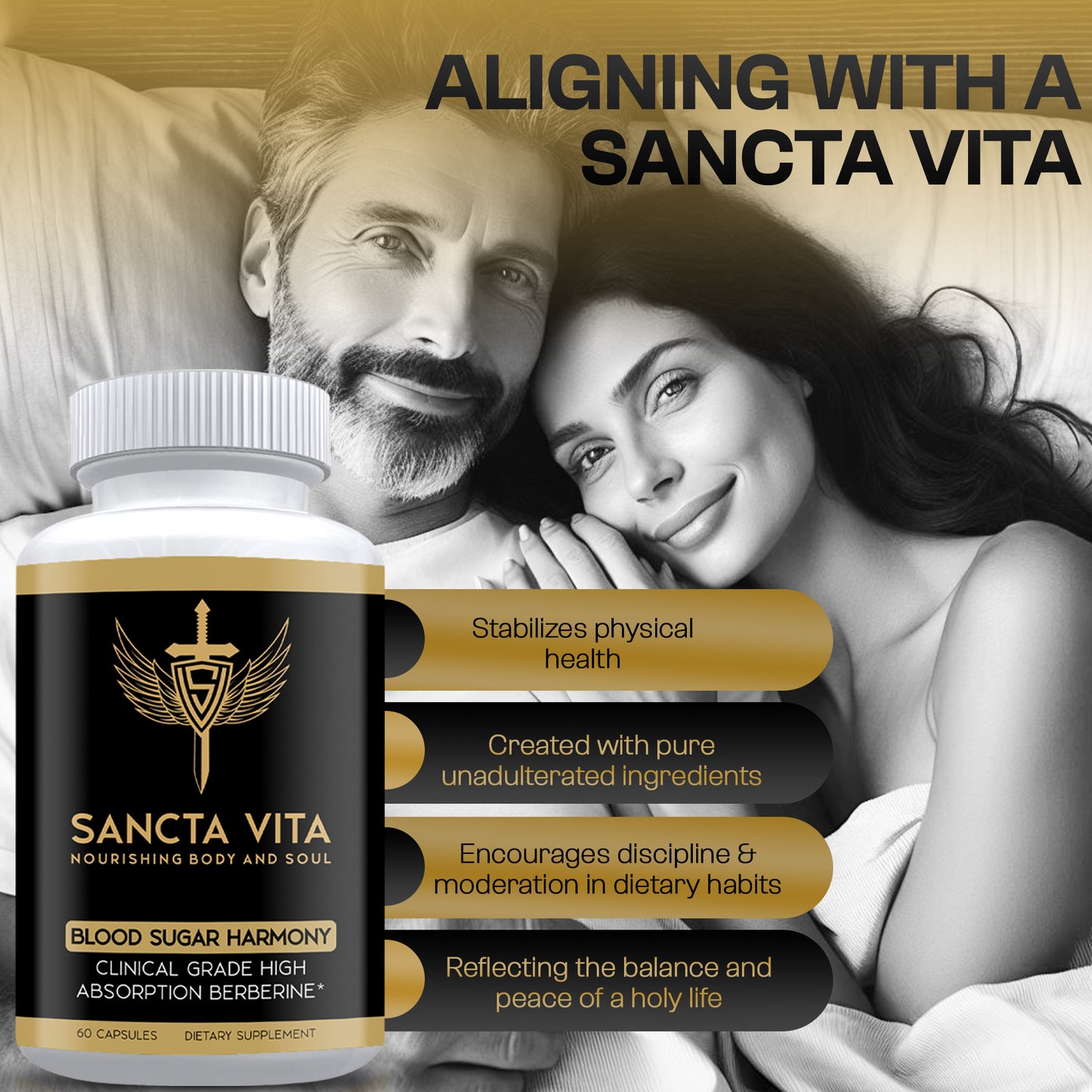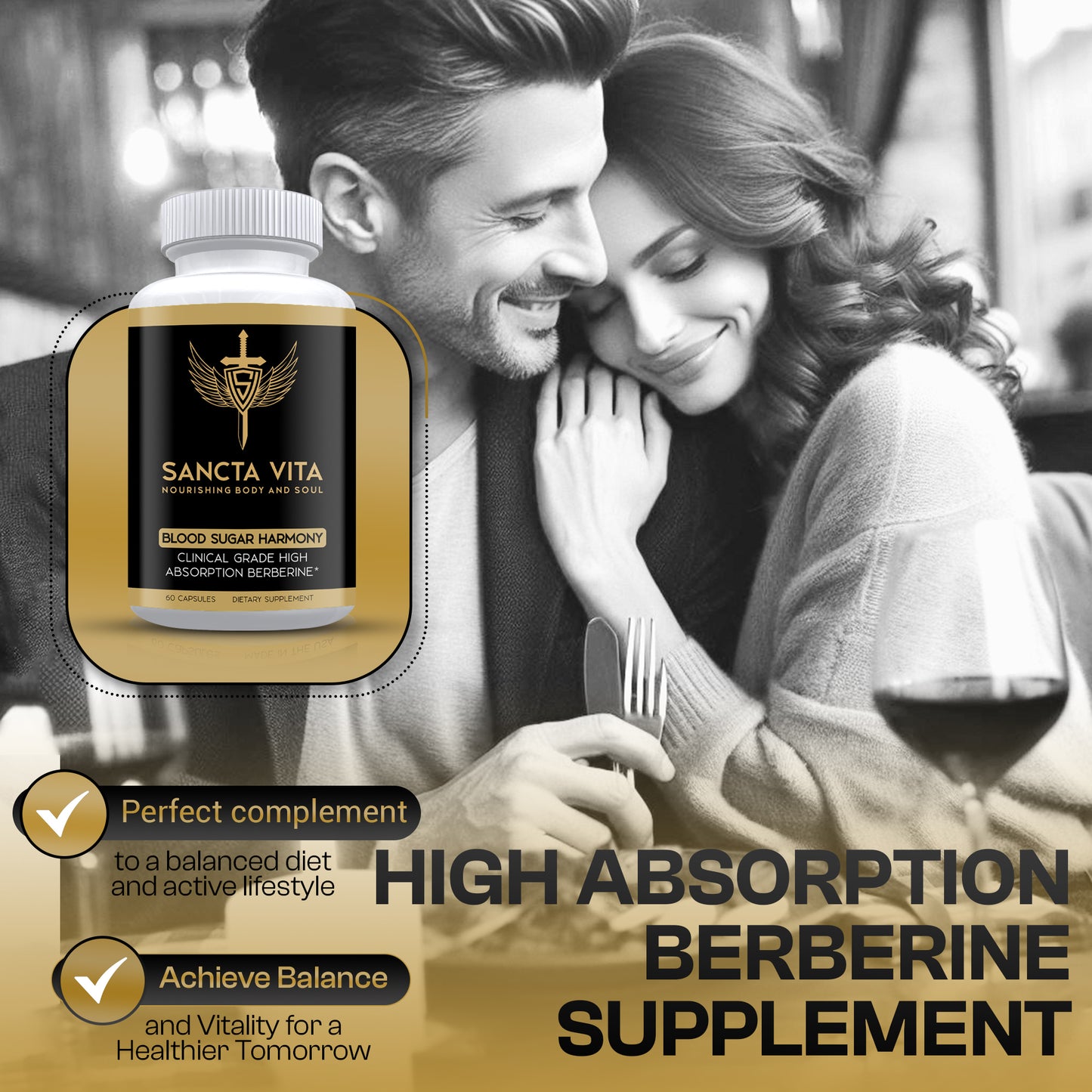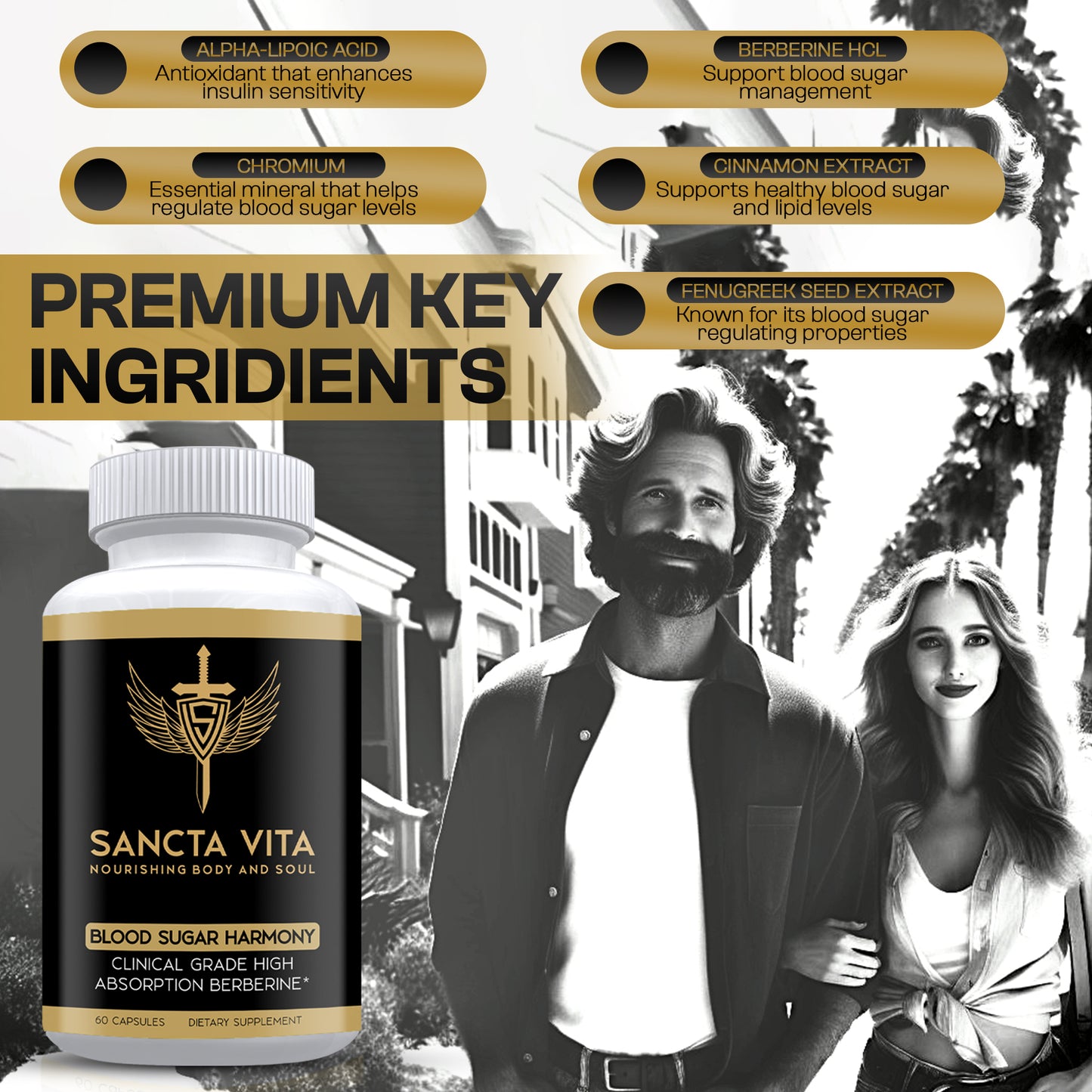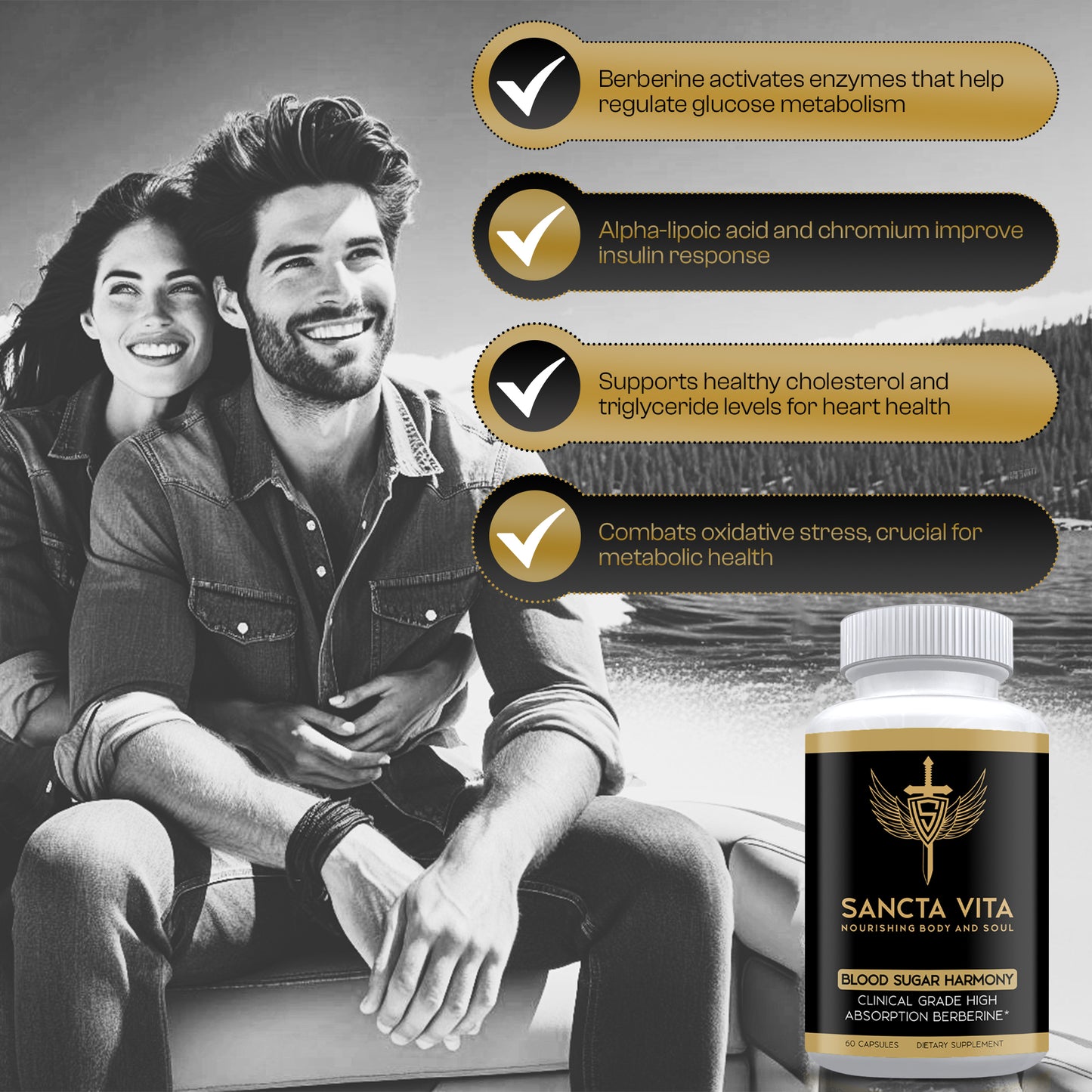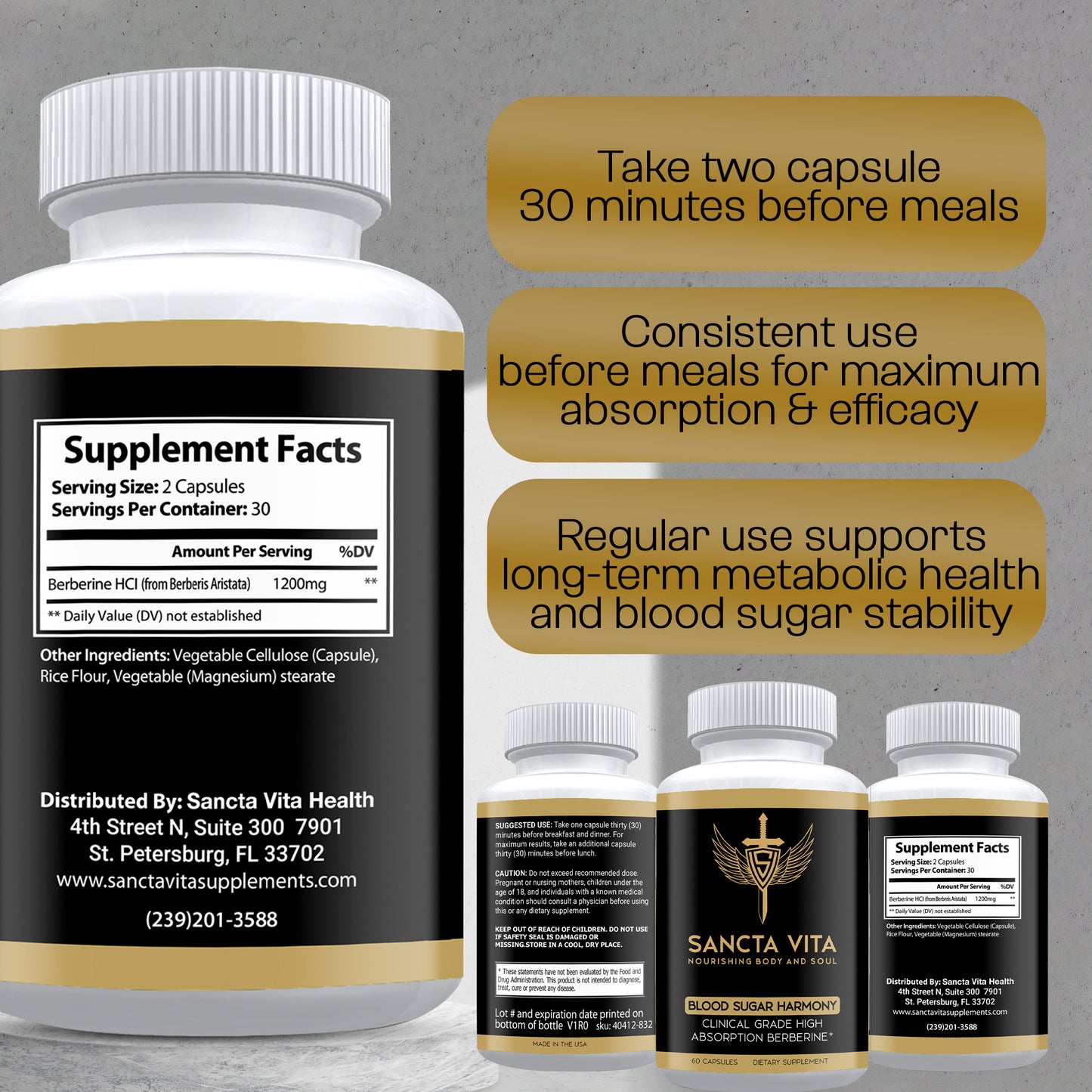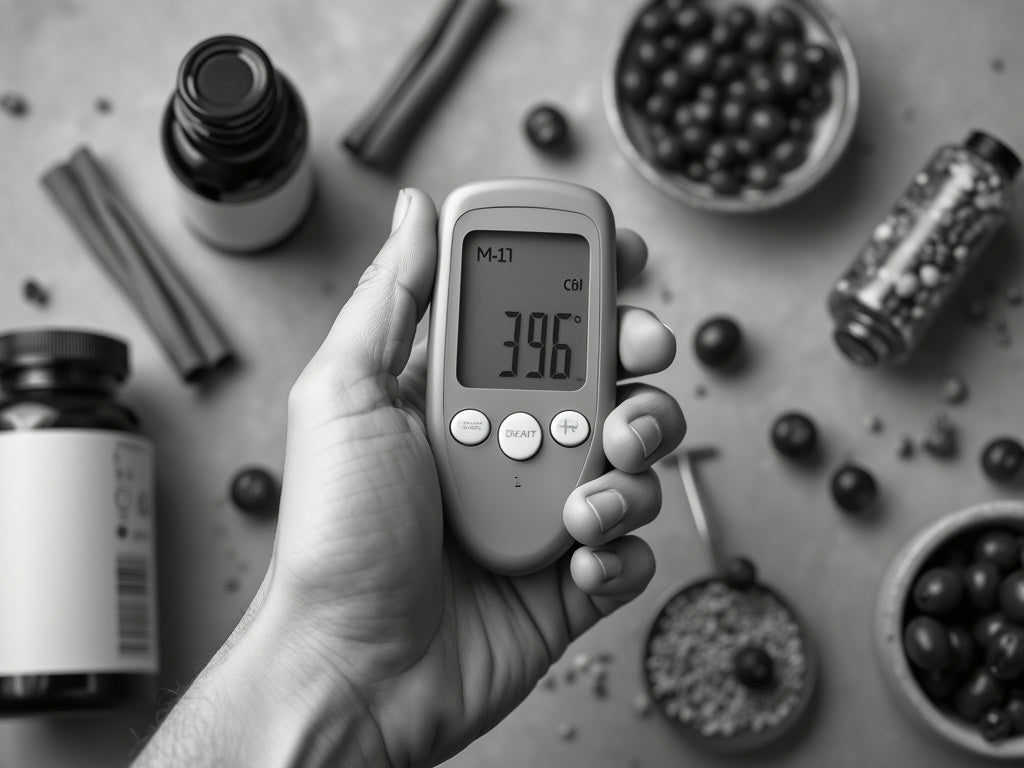
Best Blood Sugar Supplements: Top Ingredients for Glucose Control
Share
Blood sugar supplements have emerged as powerful allies in the battle against diabetes and prediabetes. With over 37 million Americans affected by diabetes and millions more at risk, glucose supplements and prediabetes supplements offer a natural approach to support healthy blood sugar levels and improve insulin sensitivity.
Key Takeaways:
- Fiber supplements can reduce sugar absorption by over 60% when taken before meals
- Berberine, known as "Nature's Metformin," can lower HbA1c by up to 2% in newly diagnosed diabetics
- Chromium picolinate enhances insulin function and improves glucose transport mechanisms
- Magnesium supplementation can improve fasting glucose levels by 15-20% in deficient individuals
- Combining supplements with a healthy diet and exercise can maximize results and potentially reduce medication dependency
The Importance of Blood Sugar Supplements for Glucose Management
With diabetes and prediabetes affecting millions of Americans, the need for effective blood sugar management tools has never been greater. Blood sugar supplements offer a natural and science-backed approach to support glucose metabolism and maintain healthy blood sugar levels. Research shows that these supplements can help delay or prevent diabetes complications, making them a valuable addition to any glucose control regimen.
One of the key benefits of blood sugar supplements is their ability to support healthy blood sugar levels after eating. By targeting various aspects of glucose metabolism, these supplements can help individuals maintain more stable blood sugar levels throughout the day.

Top Ingredients in Blood Sugar Supplements for Glucose Control
Several key ingredients stand out for their effectiveness in supporting healthy blood sugar levels. Fiber, particularly psyllium husk, has been shown to reduce sugar absorption in the intestines by over 60% when taken before meals. A 7g intake before breakfast and dinner can cut glucose spikes by an impressive 40%, while also lowering cholesterol and reducing cardiovascular disease risk.
Berberine, often referred to as "Nature's Metformin," activates AMP-K pathways, improving sugar uptake into cells. Studies have shown that berberine can match metformin's performance in newly diagnosed diabetics, reducing HbA1c by 2%. Additionally, it helps lower triglyceride and cholesterol levels, providing comprehensive metabolic support.
Chromium picolinate is another powerful ingredient that enhances insulin function by improving glucose transport mechanisms. A 2020 meta-analysis of 28 studies found significant reductions in fasting plasma glucose, insulin, HbA1C, and insulin resistance with chromium supplementation.
Magnesium is often overlooked, but its importance cannot be overstated. Up to 70% of diabetics are deficient in this essential mineral. Magnesium glycinate has been shown to improve fasting glucose levels by 15-20%. A 2020 review of 26 studies demonstrated improvements in fasting plasma glucose, insulin, insulin resistance, triglycerides, and blood pressure in type 2 diabetics with magnesium supplementation.
Prediabetes Supplements and Early Intervention
Early intervention is crucial in preventing the progression of prediabetes to full-blown diabetes. Fiber and alpha-lipoic acid have been shown to reduce this progression by 40% in high-risk individuals. When combined with lifestyle changes, these supplements can help reduce HbA1c levels by 1-1.5%.
Vitamin D is another important player in prediabetes management. Higher vitamin D status has been associated with a 43% lower risk of developing type 2 diabetes. A 2017 meta-analysis found a modest reduction in A1c (0.32% decrease on average) with vitamin D supplementation.
Alpha-Lipoic Acid (ALA) has shown promise in improving insulin sensitivity and lowering blood sugar. Studies have demonstrated that ALA can reduce fasting glucose by 8-10%, making it a valuable addition to any prediabetes supplement regimen.
Cinnamon extract has also gained attention for its glucose-lowering properties. Research has shown that it can lower fasting glucose levels by 10-15%. A 2020 meta-analysis found that cinnamon supplementation decreased triglycerides, total cholesterol, and LDL cholesterol in type 2 diabetics.
Maximizing Results with Blood Sugar Supplements
To get the most out of blood sugar supplements, it's important to combine them with a healthy lifestyle. A high-protein, low-carb diet can enhance the efficacy of fiber supplements. Adding 30 minutes of daily activity can increase insulin sensitivity by up to 20%.
Consistency is key when taking blood sugar supplements. It's recommended to take them at the same time each day and start with small doses, gradually increasing as needed. Always consult with healthcare providers for personalized dosages and to learn how to lower glucose levels quickly if necessary.
While generally safe, some potential side effects should be noted. Fiber supplements may cause mild bloating, which typically subsides after 1-2 weeks. Berberine may cause mild GI upset in dosages exceeding 1,500mg/day. Vitamin D toxicity is rare but can occur with excessive intake, so it's best to avoid exceeding 5,000 IU/day without medical supervision. Chromium overdose (>500mcg daily) may affect kidney function, so proper dosing is crucial.
For those looking for a comprehensive solution, high-absorption berberine supplements combined with other key ingredients can provide powerful support for blood sugar management.
Frequently Asked Questions
1. What are the best blood sugar supplements for lowering HbA1c?
The most effective supplements for reducing HbA1c include berberine, chromium picolinate, fiber (e.g., psyllium husk), and magnesium. Research shows berberine reduces HbA1c by up to 2%, while chromium improves insulin sensitivity, leading to measurable glucose control.
2. Are blood sugar supplements safe for prediabetes?
Yes, blood sugar supplements like fiber, alpha-lipoic acid (ALA), vitamin D, and cinnamon extract are safe and effective for managing prediabetes. These ingredients help reduce fasting glucose and improve insulin sensitivity while lowering the risk of diabetes progression by up to 40%.
3. How do glucose supplements differ from blood sugar supplements?
Glucose supplements typically provide fast-acting sugars to treat low blood sugar (hypoglycemia). Blood sugar supplements, however, help regulate or lower elevated blood sugar levels, improving insulin function and glucose metabolism over time.
4. How long before blood sugar supplements show results?
Results vary depending on the supplement and consistency in use. For example, fiber may reduce glucose spikes within days, while berberine, magnesium, and chromium may take 4–12 weeks to significantly impact HbA1c and fasting glucose levels.
5. Can supplements replace diabetes medication?
While supplements can complement diabetes management, they are not a substitute for prescribed medication. Always consult a healthcare provider before adjusting any treatment plan. Supplements combined with a healthy diet and exercise may help reduce medication dependency over time.
References
- National Center for Complementary and Integrative Health. Type 2 Diabetes and Dietary Supplements: What the Science Says.
- First Page Sage. SEO for Medical Device Companies: A Case Study.
- U.S. Department of Veterans Affairs. Supplements to Lower Blood Sugar.
- American Heart Association. 2023 AHA/ACC/ACCP/ASPC/NLA/PCNA Guideline for the Management of Patients With Chronic Coronary Disease.
- National Center for Complementary and Integrative Health. Diabetes and Dietary Supplements: What You Need To Know.
Sources:


